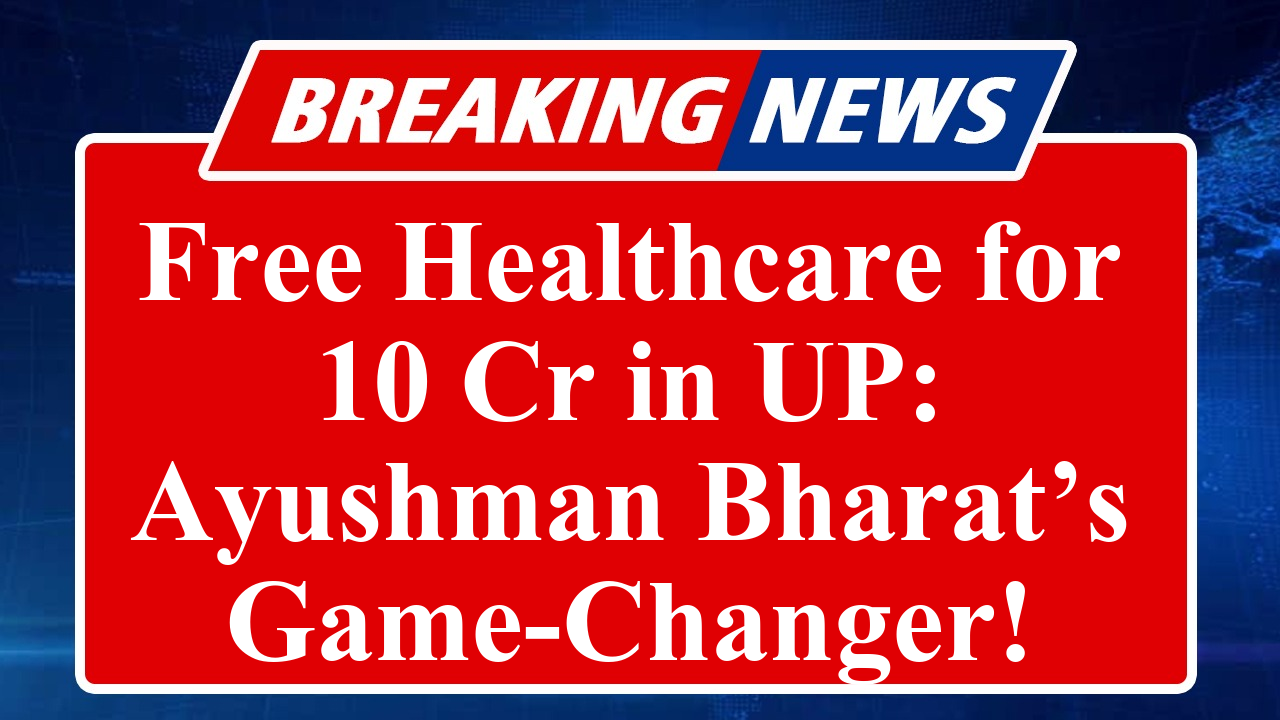“Ayushman Bharat has transformed healthcare access in Uttar Pradesh, with over 10 crore beneficiaries enrolled. The scheme has issued more than 5 crore Ayushman cards, facilitating cashless treatment worth over ₹7,000 crore for 45 lakh patients, significantly reducing out-of-pocket expenses for the poor.”
Ayushman Bharat’s Impact: Free Healthcare Reaches Millions in Uttar Pradesh
The Ayushman Bharat Pradhan Mantri Jan Arogya Yojana (AB PM-JAY), launched in 2018, has emerged as a cornerstone of India’s push toward universal health coverage, particularly in Uttar Pradesh, the country’s most populous state. With over 10 crore eligible beneficiaries, the scheme provides up to ₹5 lakh per family annually for secondary and tertiary care hospitalization, targeting economically disadvantaged families identified through the Socio-Economic Caste Census (SECC) 2011.
In Uttar Pradesh, the scheme’s implementation has been robust, with the state leading the nation in issuing over 5 crore Ayushman cards, as reported by official sources. These cards enable cashless treatment at empanelled hospitals, including prominent corporate institutions like Apollo, Medanta, and Yashoda. To date, over 45 lakh patients have benefited, with ₹7,040 crore spent on treatments, including ₹2,557 crore for tertiary care for nearly 7 lakh patients with serious illnesses, such as heart conditions and cancer.
The state’s proactive approach, under Chief Minister Yogi Adityanath’s directives, has prioritized urgent card issuance to ensure no eligible individual is left behind. This has been particularly impactful for rural and underprivileged communities, where access to quality healthcare was previously limited. For instance, over 66,000 heart patients have received treatment worth ₹684 crore, showcasing the scheme’s focus on critical care.
However, challenges persist. A recent scam in Lucknow uncovered fraudulent claims worth ₹9.94 crore involving 39 hospitals, raising concerns about data security and oversight. Authorities have recovered ₹4.03 crore and initiated a police investigation, while the State Agency for Comprehensive Health and Integrated Services (SACHIS) plans a data security audit to address vulnerabilities.
The scheme’s expansion in September 2024 to include all senior citizens aged 70 and above, regardless of income, has further broadened its reach. This move is expected to benefit 4.5 crore families nationwide, with Uttar Pradesh poised to see significant uptake given its large elderly population. Eligible seniors receive a distinct “Ayushman Vaya Vandana” card, ensuring access to free treatment and reducing out-of-pocket expenses.
Uttar Pradesh’s healthcare infrastructure has also been bolstered through the scheme, with empanelled hospitals providing specialized care and reducing the burden on public facilities. The portability of benefits allows cardholders from other states to access treatment in Uttar Pradesh, enhancing the scheme’s national impact. Despite these achievements, issues like delayed claim settlements, as seen in states like Kerala, highlight the need for streamlined processes to maintain hospital participation and ensure financial sustainability.
The Ayushman Bharat scheme continues to evolve, with Uttar Pradesh setting a benchmark for enrollment and utilization. By addressing systemic challenges and expanding coverage, the state is making significant strides toward equitable healthcare access for its most vulnerable citizens.
Disclaimer: This article is based on recent news reports, official government data, and reliable sources, including the National Health Authority and media outlets like The Times of India. Information is accurate as of August 4, 2025, and subject to change as new developments emerge.

